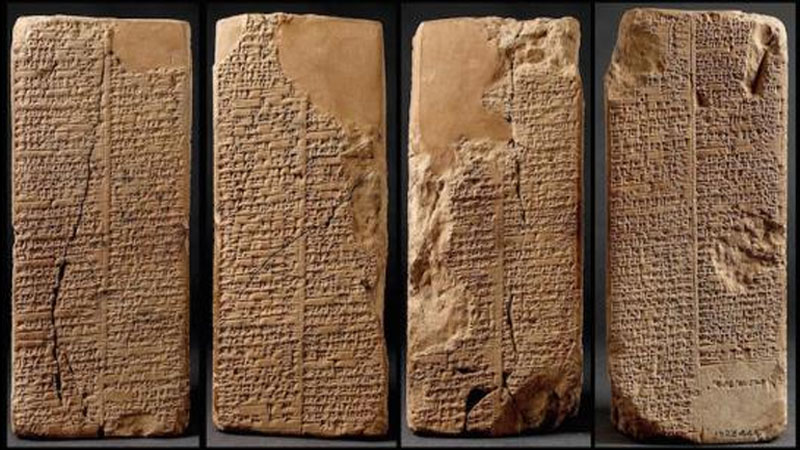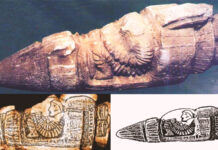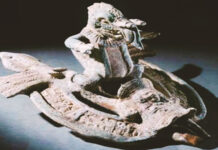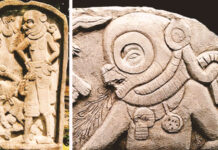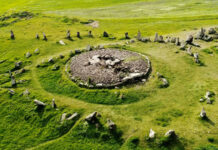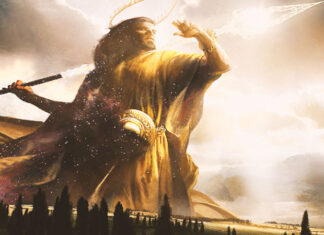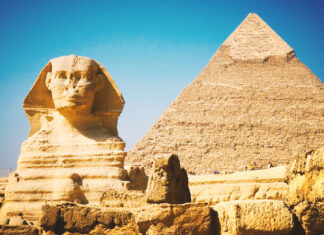One of the most fascinating Sumerian clay tablets is known as The Sumerian King List, which names the kings who ruled from the time of creation until the flood.
The Sumerian tablets were partially destroyed by the action of time, but what remains of them shows us the kings who ruled for a total of 241,200 years.
The first fragment of this rare text was found in the early 1900s by scholar Hermann Hilprecht in the ancient city of Nippur.
The tablets begin with these words: “After the kingship descended from heaven, the kingship was in Eridug. In Eridug, Alulim became king; he ruled for 28800 years. Alaljar ruled for 36000 years.”
Their reigns were measured in “sars”, a measure of time that is equivalent to 3600 years, and in “ners” which is equivalent to 600 years.
According to the information contained in the tablets, the kings and their period of reign are:
Alulim: 8 sars (28,800 years)
Alalgar: 10 sars (36,000 years)
Enmenluana: 12 sars (43,200 years)
Enmengalana: 8 sars (28,800 years)
Dumuzi the shepherd: 10 sars (36,000 years)
Ensipadezidan: 8 sars (28,800 years)
Enmendurana: 5 sars and 5 ners (21,000 years)
Ubara-Tutuquim: 5 sars and 1 ner (18,600 years)
Sucurl: 8 sars (28,800 years)
Zinsudu or Utnapistim: the king at the time of the flood, also known as the “Noah of Sumer”.
After the flood, the King List continues to record that kings ruled for much shorter periods of time.
The surprisingly long reign of these early kings has caused many attempts at interpretation.
Mainstream archaeologists reject astronomical numbers as completely artificial and are of the opinion that these kings are merely mythical.
The Ancient Astronaut Theorists believe that the numbers are based on reality documented by ancient Sumerian culture and that the first kings were in fact “gods” capable of living much longer than humans.
The tablet says that royalty “descended from heaven”, and perhaps these kings were not mere humans, but Anunnaki or Anunnaki hybrids.
According to other ancient Mesopotamian texts, we know that the famous Gilgamesh, king of Uruk and grandson of Utnapistim, was considered a demigod like Hercules, the Greek hero.

